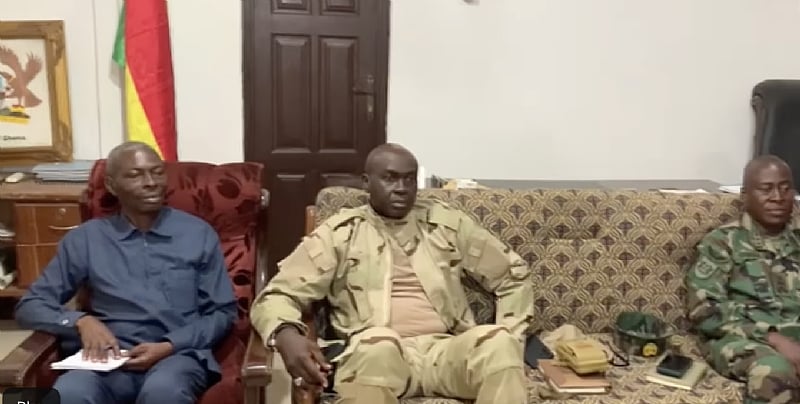The National Security Coordinator, DCOP Osman Abdul Razak, has voiced deep concern over the escalating instances of violence stemming from chieftaincy and land disputes across the nation. During a visit to Nkwanta in the Oti region, he underscored the gravity of the situation and urged individuals to pursue established legal channels for resolving such conflicts, rather than resorting to violence. He emphasized the need for enhanced collaboration among security agencies to effectively address these complex challenges, which pose a significant threat to national peace and stability.
DCOP Abdul Razak’s visit to Nkwanta served as a platform for assessing the prevailing conflict dynamics and engaging with traditional leaders in the region. He stressed that isolated efforts by individual security agencies would be inadequate to control the escalating violence associated with chieftaincy and land disputes. His call for inter-agency cooperation highlights the need for a unified and coordinated response, leveraging the expertise and resources of various security bodies to effectively quell unrest and prevent further escalation. This collaborative approach aims to transcend individual agency mandates and foster a synergistic approach to conflict resolution.
The National Security Coordinator also underscored the importance of proactive measures in preventing and managing such disputes. He advocated for a firm and decisive stance against any individuals or groups whose actions threaten the nation’s peace. This proactive approach, he argued, would deter potential perpetrators of violence and ensure swift intervention to prevent disputes from spiraling into large-scale conflicts. This proactiveness also entails identifying and addressing the root causes of these conflicts, including underlying socio-economic issues and historical grievances that fuel tensions.
DCOP Abdul Razak’s strong caution against violent resolutions to chieftaincy disputes reflects the government’s commitment to upholding the rule of law. He warned that individuals or groups resorting to violence would face the full force of the law. While advocating for peaceful resolutions through established channels, he emphasized that the state would not tolerate any acts of violence that endanger citizens. This message reinforces the government’s commitment to maintaining order and protecting the safety and well-being of its citizens.
The National Security Coordinator’s engagement with traditional leaders in Nkwanta demonstrates the vital role of traditional authorities in conflict resolution. By engaging with these leaders, the government seeks to leverage their influence and authority within their communities to promote peaceful coexistence and dialogue. Recognizing the deep-rooted respect for traditional institutions in many parts of the country, DCOP Abdul Razak emphasized the importance of these leaders actively discouraging their subjects from resorting to violence and encouraging adherence to peaceful negotiation processes.
DCOP Abdul Razak’s visit and pronouncements underscore the government’s multifaceted approach to addressing the escalating violence associated with chieftaincy and land disputes. This approach combines calls for collaborative action among security agencies, emphasis on proactive intervention, stern warnings against violent actions, and engagement with traditional authorities. By addressing these issues comprehensively, the government aims to create an environment conducive to peaceful coexistence and ensure that disputes are resolved through legal channels, upholding the rule of law and protecting the safety and security of all citizens. His pledge to stand “in the trenches” with security personnel signifies the government’s unwavering commitment to resolving these disputes and ensuring the safety and security of the nation.


